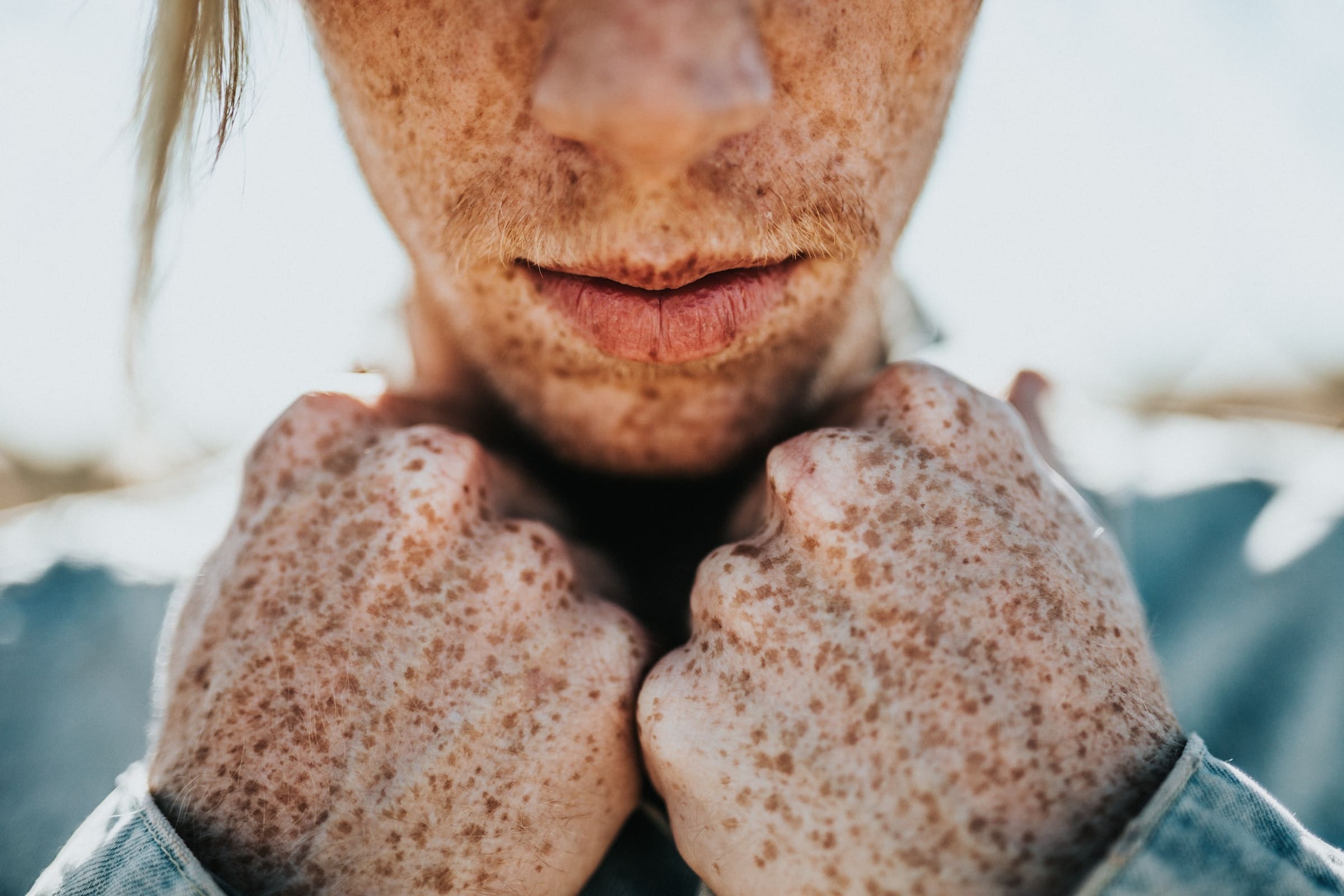Introduction
In a world that often celebrates perfection, it can be challenging to embrace our flaws and truly love ourselves. However, the beauty of imperfection lies in its uniqueness and the opportunity for growth and self-acceptance it provides. This article explores various inspiring ways to celebrate the beauty of imperfection and nurture a positive relationship with ourselves.
Embracing Imperfections

Recognizing the Beauty in Imperfections
Imperfections are what make us human, and they contribute to our individuality and character. By reframing our perspective, we can start seeing imperfections as unique traits that add depth and beauty to our lives.
Developing Self-Acceptance
Self-acceptance is a crucial step toward embracing imperfections. It involves acknowledging our strengths and weaknesses, celebrating our achievements, and being compassionate towards ourselves, flaws included. Embracing imperfections gives us the freedom to release our reliance on seeking validation from others and fully embrace who we truly are. We no longer feel the constant pressure to meet external standards or please everyone around us. Instead, we can wholeheartedly accept ourselves, quirks and all, without seeking approval or validation from others.
Letting Go of Perfectionism
Perfectionism often stems from societal pressures and unrealistic expectations we place on ourselves. By letting go of the pursuit of perfection, we can alleviate unnecessary stress and anxiety, and focus on personal growth and self-improvement instead.
Cultivating Self-Compassion
Self-compassion involves treating ourselves with kindness, understanding, and forgiveness. It means embracing imperfections as part of our journey and extending the same compassion we would offer to a loved one. Through self-compassion, we can foster resilience and a positive self-image.
Celebrating Individuality
Every person is unique, and our imperfections are what set us apart. Celebrating our individuality involves embracing our quirks, talents, and idiosyncrasies. By valuing and expressing our authentic selves, we can inspire others to do the same.
Nurturing a Positive Body Image
In a society that often promotes unrealistic beauty standards, it can be challenging to develop a positive body image. Embracing imperfections and focusing on what our bodies can do, rather than how they look, allows us to appreciate and love ourselves unconditionally.

Embracing Emotional Vulnerability
Being vulnerable and showing our authentic emotions is an act of courage. Embracing imperfections includes accepting and expressing our feelings openly, building deeper connections with others, and fostering emotional growth.
Accepting Mistakes and Failures
Mistakes and failures are inevitable parts of life. Embracing imperfections means accepting that these setbacks are opportunities for learning and growth. By reframing our perspective on failure, we can transform it into a stepping stone toward success.

Learning and Growing from Challenges
Challenges and obstacles provide valuable opportunities for personal development. Embracing imperfection involves viewing challenges as learning experiences and finding strength and resilience within ourselves to overcome them.
Practicing Gratitude and Self-Care
Gratitude and self-care are powerful practices that enhance our well-being and self-love. Embracing imperfections includes appreciating what we have, nurturing ourselves physically and emotionally, and prioritizing our own needs and happiness.
Surrounding Yourself with Supportive People
Building a supportive network of friends, family, and mentors is essential in embracing imperfections. Surrounding ourselves with people who accept us for who we are, our flaws, and all, provides a safe space for personal growth and self-acceptance.

Setting Realistic Expectations
Setting realistic expectations for ourselves allows us to avoid the pitfalls of perfectionism and self-criticism. Embracing imperfection means understanding our limitations and focusing on progress rather than unattainable ideals.
Conclusion
Embracing the beauty of imperfection is a transformative journey toward self-acceptance and self-love. By recognizing the uniqueness and value of our flaws, we can cultivate a positive relationship with ourselves and inspire others to do the same. Remember, imperfections are what make us beautifully human.
FAQs
1. How do you embrace your flaws and imperfections?
Embracing your flaws and imperfections starts with self-acceptance and self-love. Recognize that nobody is perfect and that your imperfections make you unique. Practice self-compassion, focus on your strengths, and let go of the need for perfection. Celebrate your flaws as part of your journey and growth as an individual.
2. How do you accept your flaws and love yourself?
Accepting your flaws and loving yourself involves shifting your mindset. Start by acknowledging that imperfections are a natural part of being human. Challenge negative self-talk and replace it with self-encouragement and self-compassion. Practice gratitude for your body, mind, and achievements. Surround yourself with supportive and positive influences.
3. Why is it important to accept imperfections and embrace who you are?
Accepting imperfections and embracing who you are is essential for your overall well-being and happiness. It allows you to develop a positive self-image, reduce self-criticism and perfectionism, and cultivate self-compassion. Embracing your true self brings authenticity, self-confidence, and deeper connections with others.
4. What does “there is a beauty in imperfection, embrace it” mean?
“There is a beauty in imperfection, embrace it” means acknowledging and appreciating the unique qualities and character that imperfections bring. It signifies finding beauty and value in the things that make us flawed and embracing them as part of our individuality. It’s a reminder to embrace our imperfections and see them as a source of strength and growth.
5. Why is imperfection important?
Imperfection is important because it is a fundamental aspect of being human. It reminds us that we are not defined by our flaws, but rather by our ability to learn, grow, and adapt. Imperfections teach us humility, resilience, and empathy. They allow us to connect with others on a deeper level and create a more compassionate and accepting society.
6. What is the beauty of accepting flaws?
The beauty of accepting flaws lies in the liberation it brings. When you accept your flaws, you free yourself from the burden of perfectionism and self-judgment. Acceptance allows you to focus on personal growth, self-improvement, and cultivating a positive relationship with yourself. It opens the door to self-love, self-compassion, and a greater sense of fulfillment.
7. How do I embrace my imperfections?
To embrace your imperfections, start by reframing your perspective. Shift your focus from self-criticism to self-acceptance. Recognize that imperfections are part of your unique story and journey. Practice self-care, surround yourself with positivity, and challenge societal ideals of perfection. Celebrate your strengths, embrace vulnerability, and treat yourself with kindness and compassion.
8. Why is being imperfect beautiful?
Being imperfect is beautiful because it reflects our authenticity and humanity. It allows us to connect with others on a genuine level, as they too have their own imperfections. Embracing imperfections encourages personal growth, resilience, and the development of meaningful relationships. It is through our flaws that we shine with true beauty.
9. How do our imperfections make us perfect?
Our imperfections make us perfect in the sense that they contribute to our uniqueness and individuality. Embracing our flaws and accepting ourselves as imperfect beings allows us to grow, learn, and evolve. It is through our imperfections that we become more empathetic, compassionate, and understanding towards others. Embracing imperfection is what makes us beautifully human.
10. What is an example of an imperfection?
An example of an imperfection can be a physical feature that deviates from conventional beauty standards, such as a birthmark or scar. It can also refer to personal traits like being forgetful or having a fear of public speaking. Imperfections are diverse and subjective, varying from person to person. They are what make each individual unique and interesting.
11. How to see beauty in imperfection?
To see beauty in imperfection, it requires a shift in perspective. Focus on the qualities that make imperfections unique and special. Look beyond superficial expectations and appreciate the depth and character they bring. Embrace the idea that imperfections contribute to our individual beauty and add richness to our lives.
12. Is imperfection an important part of being human?
Absolutely, imperfection is an important part of being human. It is what makes us relatable, empathetic, and capable of growth. Imperfections teach us valuable lessons, foster resilience, and promote personal development. Embracing imperfections is a vital aspect of embracing our humanity and living authentically.





















